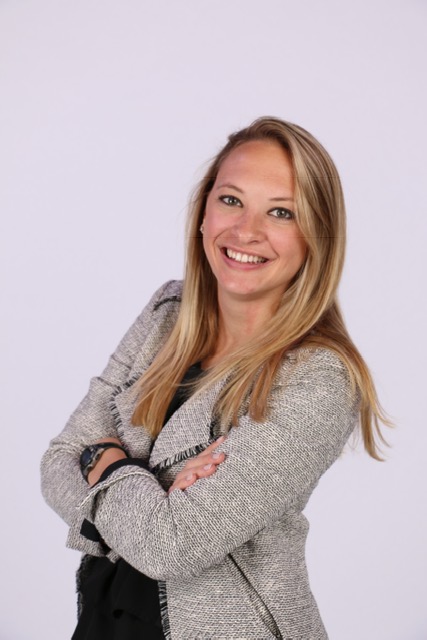David Hawk: Hi, I'm David Hawk, CEO of Agile Velocity, where we focus on guiding organizations through agile transformations and are the inventors of the Path to Agility framework. Our team has had the pleasure of working with Southwest Airlines over the last two years, coaching them along their business agility journey.
Today, I have with me Emily Beatty, an Agile Strategist at Southwest Airlines, who has played a key role in their business agility adoption. Emily has been in the airline industry with Southwest for nearly 10 years. In her current role, she improves the digital space using agile methods, particularly within the booking flow, and serves on the Agile Leadership Transformation team, helping extend agility within the marketing department.
David: Welcome, Emily!
Emily Beatty: Thanks for having me!
Southwest’s Resilience in Crisis
David: So, this is going to be great. We all know Southwest has a great reputation and a strong culture, but the company has faced its share of challenges—from 9/11 to the financial crisis and even the early struggles of just getting planes in the air in Texas. Can you share your experiences on how Southwest deals with crises as they emerge?
Emily: It's been remarkable, honestly. Employees feel a deep connection to the airline, and part of that comes from witnessing how we navigate crises. Herb Kelleher had a saying that if you don’t change, you die. That mindset has carried through every challenge we've faced.
Since I joined, we've gone through major changes—acquiring AirTran, launching the Rapid Rewards program, and now dealing with the challenges of today. It's incredible to see how Southwest continues to evolve and thrive through these challenges.
What Makes Southwest’s Crisis Management Unique?
David: What do you think is unique about the way Southwest handles a crisis? How does it compare to how you imagine other companies respond?
Emily: Honestly, it all comes down to leadership. We've had strong leadership from Herb Kelleher to Gary Kelly, and they’ve been incredibly transparent. That transparency rallies employees and gives them a clear focus.
Southwest has clear values—warrior spirit, servant leadership, and a fun-loving attitude. Those values aren’t just words; they guide our actions. We always go back to basics and focus on what truly matters.
Agile Practices vs. Traditional Crisis Response
David: Over the last year, you've been working on an agile team within marketing, embracing quick experiments, fast learning, and rapid adaptation. How does that compare to the traditional task-force approach to crisis management?
Emily: They’re actually very similar! In crisis situations, teams come together with a shared mission and goal. Everyone is aligned, the right people are in the room, and leadership supports decision-making. Decisions are made quickly because they have to be.
Our agile team operates the same way—focused, collaborative, and empowered to make decisions. The difference is that in a crisis, there’s often an unsustainable pace, whereas with agile, we aim to sustain that pace over the long term.
Decision Agility at Southwest
David: One key component of agility is decision agility. Leaders need to provide clear purpose so that teams can respond quickly to the information they’re closest to. If employees lack clarity, they’ll keep asking, “What’s the next task?” rather than making decisions themselves. How does this manifest at Southwest?
Emily: We get insights from all over the company—our insights team is constantly in the market listening to customers. Our job is to connect those insights to leadership’s objectives. When those align, we get both clear direction and room for innovation.
A great example is how our agile team quickly responded to leadership’s requests during the pandemic. We knew what we were aiming for and acted without hesitation. That clarity allowed us to move fast and even contribute to major ad campaigns.
Responsiveness and Empowerment
David: Responding to change means quickly adapting when the rules shift. Empowering employees to test and implement solutions is crucial. Do you think leadership has shifted in how they approach solutions over the past year?
Emily: It depends. Some leaders still jump into solution mode, but in our pilot program, leadership did an amazing job of stepping back and letting us run with ideas. That level of trust was a game-changer. Employees in the trenches had the autonomy to focus on what would make the biggest difference.
Operating in Uncertainty
David: Crises and agile transformations both require operating in uncertainty. You don’t always have a predefined backlog of tasks. How did that play out in your pilot program?
Emily: Our mission was simply to optimize the booking flow. There was no predefined backlog. We had to figure out what mattered most based on ongoing learning and customer feedback. Instead of executing a fixed plan, we continuously iterated to deliver meaningful results.
Customer-Centric Agility
David: One of the key aspects of agility is being closely tied to customer needs. Southwest is known for its customer connection—how does that influence agility?
Emily: This is a passion point for me. Southwest deeply cares about its customers, and that extends to internal customers too. Everyone who works here is likely a customer themselves, so we interview employees as well as external customers to gather insights. That internal-external balance ensures we’re always making decisions that serve our customers best.
Clarity and Stability in Crisis
David: Southwest has two pillars that stand out—clarity of mission and a deep connection to customers. Many organizations panic in a crisis because they lack that clarity. How does having a strong identity help Southwest navigate challenges?
Emily: When you're grounded in clear values and a strong mission, you don’t waste time figuring out who you are when a crisis hits. That means we can focus on taking action, knowing that we’re making the right decisions for our customers. Revenue follows when we stay true to our purpose.
Looking Ahead
David: Any final thoughts on Southwest’s agility journey?
Emily: It’s been wonderful to watch Southwest evolve. We've always been agile at heart, overcoming obstacles and adapting quickly. Now, we're focusing on taking that agility to the next level, improving how we operate and continuously learning. It’s an exciting journey, and I look forward to what’s next.
David: That’s fantastic. Thank you for sharing your insights, Emily. This has been a great conversation!
Emily: Thanks for having me! Looking forward to any questions from the audience.




